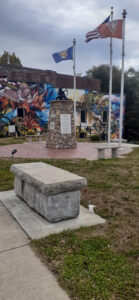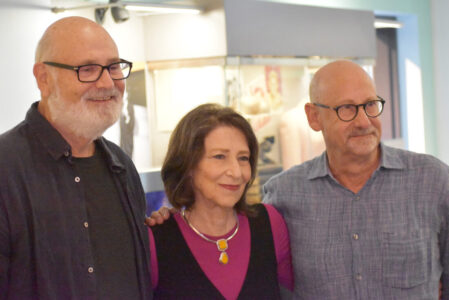Child care still available for essential employees

Beth Starks, founder and executive director of Chautauqua Lake Childcare Center, said her facility and others are remaining open to serve the needs of essential workers, while implementing social distancing as much as possible to keep children and families healthy. Submitted Photo.
Even before the outbreak of COVID-19, Chautauqua County was considered a “child care desert.” Now more than ever, quality child care for New York’s essential workforce is in high demand, as parents of school-aged children have suddenly found themselves in a difficult position due to the closure of all public schools.
According to Elizabeth Starks, founder and executive director of the Chautauqua Lake Childcare Center and coordinator of early childhood education at JCC, “One of the biggest issues in Chautauqua County is having enough child care. People can’t work if they don’t have child care, and that’s the biggest challenge to our county’s workforce.”
Over the years, Starks, who is a member of Gov. Andrew Cuomo’s Child Care Availability Task Force and , has worked hard at both the state and local levels to address the paucity of state-licensed affordable child care in Chautauqua County. She has worked closely with Dunkirk’s Mayor Rosas and George Borrello, former county executive, to bring more child care options to the county and secure grant funding for families in need. Due to the increased demand for essential workers, especially in the healthcare fields, those grant opportunities have recently been expanded for families who now need child care.
“Initially, daycare centers’ numbers were decreasing because parents were working from home,” said Starks. “Then, we had an increase in medical and other essential workers needing care for a variety of reasons.”
Starks pointed out that parents of school-aged children who weren’t planning for child care until the summer months are now in need of child care. Many private, in-home daycare facilities have now closed. “Some parents may be working extra hours or in different ways now,” Starks added. “Some have relied on grandparents for care but have determined that’s no longer safe. This means extra stress in a time that’s already stressful, and we’re working hard to take away a piece of that stress.”
Since mid March when public schools began closing, Starks has been working together with Susan Marker and the Chautauqua County Childcare Council to form a team of early childhood professionals to work with school districts, BOCES, child care providers, the county department of health and human services and the community to combat the child care crisis. The team has created a Chautauqua County Child Care Emergency COVID-19 Response Plan to address evolving needs so that medical personnel, emergency service employees and other essential employees have affordable access to child care.
“We’ve been in communication with our county’s hospitals, essential businesses, school districts and Chautauqua County’s human resources department urging them to have their essential employees contact the Child Care Council with their child care needs,” Starks told the OBSERVER. “We provided them with a letter to give employees that includes a link to an online survey (available in English and Spanish) so that we can assess the county’s needs for care.”
Starks explained that essential workers in immediate need of child care should contact the council at 1-800-424-4532 or childcare@chautopp.org. “They can call right away to be matched up with care and financial assistance,” Starks explained. “Chautauqua County has applied and been approved for several waivers from the state that expand child care financial assistance available for New York’s essential workforce. We’re using resources from local schools, counties and the state to get funding and help as many families as possible, as not everyone can afford child care at this time.”
Starks addressed some of the misconceptions regarding child care during the COVID-19 crisis. “Initially, some were confused by the fact that the schools were closed, but we (Chautauqua Lake Child Care Center) were open,” she noted. “Some are worried about whether it’s safe or not to have groups of children together. Many have struggled with affordability before and don’t know that the resources are available.”
Starks explained that Chautauqua Lake Child Care Center is accepting infants through age 12 and implementing social distancing as much as possible (groups of no more than 10 in one space), hand washing, sanitizing and extra cleaning procedures.
Other facilities have implemented similar policies. Beth Mulkin, executive director of Campus & Community Children’s Center in Fredonia, said that while the Wheelock Campus has closed, the early care center and Dunkirk preschool/school-age facility are open. “Health and safety are priorities for us,” said Mulkin. “We are making sure that we comply with all the recommendations with hand sanitizing and hand washing. Any child that displays any sign of illness is not permitted. We have groups of no more than 10 in any particular area.”
Both facilities take children’s temperatures before admitting them to the building. Mulkin and Starks said that they are continuing to stay open and accept infants through school-aged children of essential workers, and homework support is available.
“I’ve been in conversations with colleagues across the state, listening to how they’re handling this crisis,” said Starks. “How can we be as prepared as we can be? That’s why we’ve created a plan: To determine what we need now, while anticipating what the need might be two or three weeks down the road.”
For more information about child care opportunities in Chautauqua County, call 1-800-424-4532 or visit https://www.chautauquaopportunities.com/child-care-options/.




